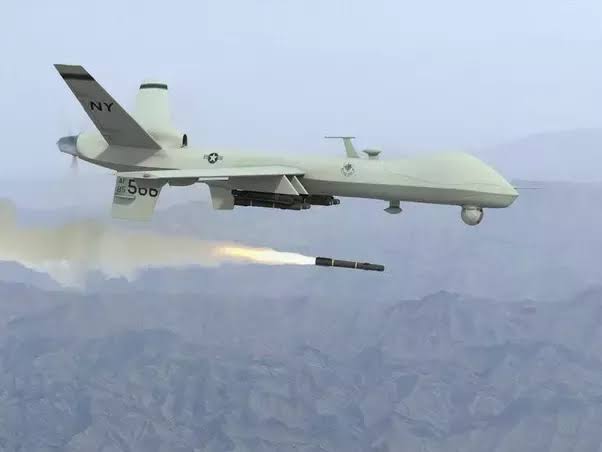Nigeria News
Worry As ISWAP Step Up Plans To Deploy Drones For Attacks

There are fears that the dreaded Islamic State of West Africa Province (ISWAP) is preparing to deploy drones for attacks in the Lake Chad Basin.
This was made known in a report by the Institute For Security Studies (ISS), Naija News report.
According to ISS, ISWAP, in its attempt to carry out attacks undetected, plan to use unmanned aerial vehicles (UAVs) to fly improvised explosive devices (IEDs) to targeted locations in Nigeria and neighboring countries.
It noted that the Nigerian military had inflicted losses on Boko Haram factions, Jama’atu Ahlis-Sunna Lidda’Awati Wal-Jihad (JAS) and ISWAP, forcing the latter to re-strategize.
ISS report, comprising an analysis of propaganda materials and interviews with former combatants and associates, revealed an elaborate use of communication technology.
This includes satellite phones, drones, social media, high-speed printers, laptops, cameras, Wi-Fi, clip-on microphones, walkie-talkies, and data compression and archiving software.
The research found that the tools are used by ISWAP’s media team led by Abba Yusuf (aka Abu Rumaisa), son of the late Boko Haram founder, Mohammed Yusuf.
Giving information on ISWAP’s latest strategies, former fighters revealed how staff were recruited from within the sect and taught how to position themselves and take photos and videos during attacks.
According to ISS, ISWAP used Thuraya Wi-Fi and spent about $6,000 monthly on data, and Lagos was the primary supply source before a switch to Chad, where satellite phones are illegal.
The security policy think-tank charged security agencies to sustain surveillance on supply routes through checkpoint searches which “have proved successful.”
“Those bringing in equipment and accessories should explain their destinations; collaboration among security forces in the four affected Lake Chad Basin countries can help,” it noted.
On military collaborators who help terrorists, the military was encouraged to “hold their personnel to the highest standards and use an independent ombudsman to deter corruption.”
On civilians colluding with terror groups, ISS advised authorities to liaise with community leaders and relevant groups to identify and disrupt networks helping terrorists.
With insurgents likely to engage in cybercrime, the group further recommended increased government investment in technology and partnership with tech companies.
“Going after ISWAP’s money is vital…to its major revenue base. Curtailing access to technology will prevent it from using tech to plan and execute attacks, spread propaganda, and recruit,” ISS added.












